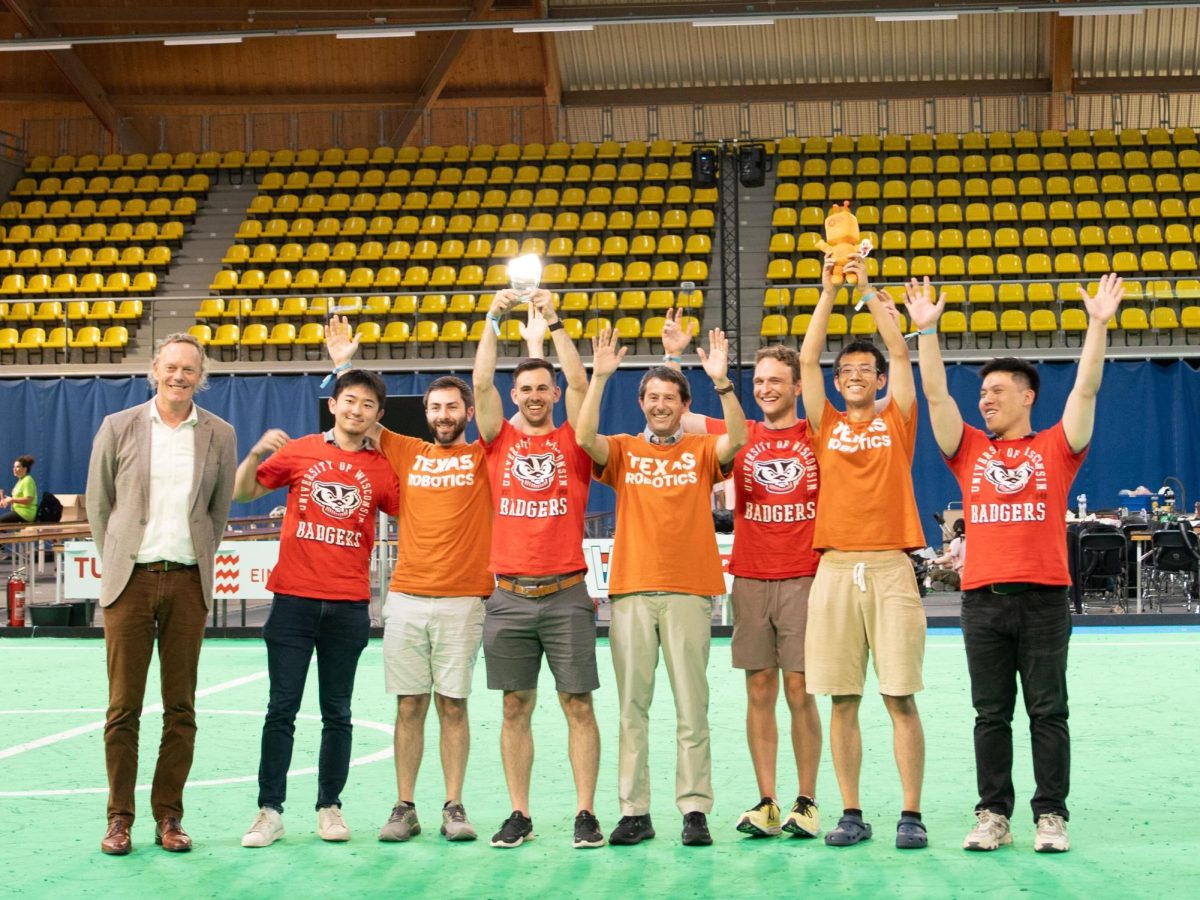Usually, in a soccer arena in the Netherlands, one would find crowds cheering their favorite team to victory. This July, however, those cheers were dedicated to UT’s robotics team. Zhihan Wang, a Texas Robotics team member and computer science Ph.D. candidate, compared the atmosphere to a “music festival for robotics people.”
Texas Robotics competed and took first at RoboCup Soccer 2024 in the Standard Platform League, where the team played eight matches with a fully autonomous robot from July 17-21 in Eindhoven, Netherlands. Two thousand participants from more than three dozen countries made up the competition. This year, Texas Robotics partnered with students at the University of Wisconsin to form WisTex United.
“The entire process is about improving, especially during the competition,” Wang said. “(On) the first day, we’re not the best team in the league … so we keep improving and by elimination, we were able to defeat all the other teams.”
Peter Stone, Texas Robotics director and computer science professor, said RoboCup’s overall design pushes the state of the art in artificial intelligence and robotics.
“The long-term objective of RoboCup is to create a team of humanoid robots that can beat the best World Cup soccer team on a real soccer field (by 2050),” Stone said.
Stone said when preparing for any competition, many technical obstacles arise. However, the first-time team collaboration with the University of Wisconsin proved a new challenge.
“Figuring out the logistics where students from both universities could work together … and improve things was an organizational challenge, but I was really happy with the way the students came together and worked as a team,” Stone said.
Students started working on the robots during the spring semester and continued throughout the summer. Stone said their victory proved rewarding after a rocky start at the competition.
“When we started the event, it didn’t look like we were going to be one of the top teams,” Stone said. “The code wasn’t working perfectly, and the performance wasn’t exactly what we were hoping (for). But we did a lot of work there, … and I was most satisfied that we showed such dramatic improvement from the beginning to the end.”
Another competition within RoboCup, RoboCup@Home, focuses on robots capable of assisting people in their household. Yuqian Jiang, a computer science Ph.D. candidate, led the RoboCup@Home team and said their final task proved most rewarding.
“There’s a random command for the robot that’s generated on the spot,” Jiang said. “The person speaks to the robot, and the robot has to understand the command … and execute the task. … We were the highest-scoring team for this task, … it’s all very worth it.”
Jiang’s efforts also won her RoboCup’s Silvia Coradeschi Award, which is given to young, promising women in recognition of their distinguished research.
“It’s very obvious, the gender distribution — there are more men than women,” Jiang said. “There’s definitely this shared appreciation of women. It took us so much to be there, … and I feel really honored that I got selected for this award among all those amazing women.”
As Texas Robotics prepares for new recruits, Wang said this organization provides a great way to build friendships amongst people who share similar interests.
“You work with a team of people willing to put effort,” Wang said. “Improving our skills, improving the robot … and building connections with people, that’s really rewarding.”














